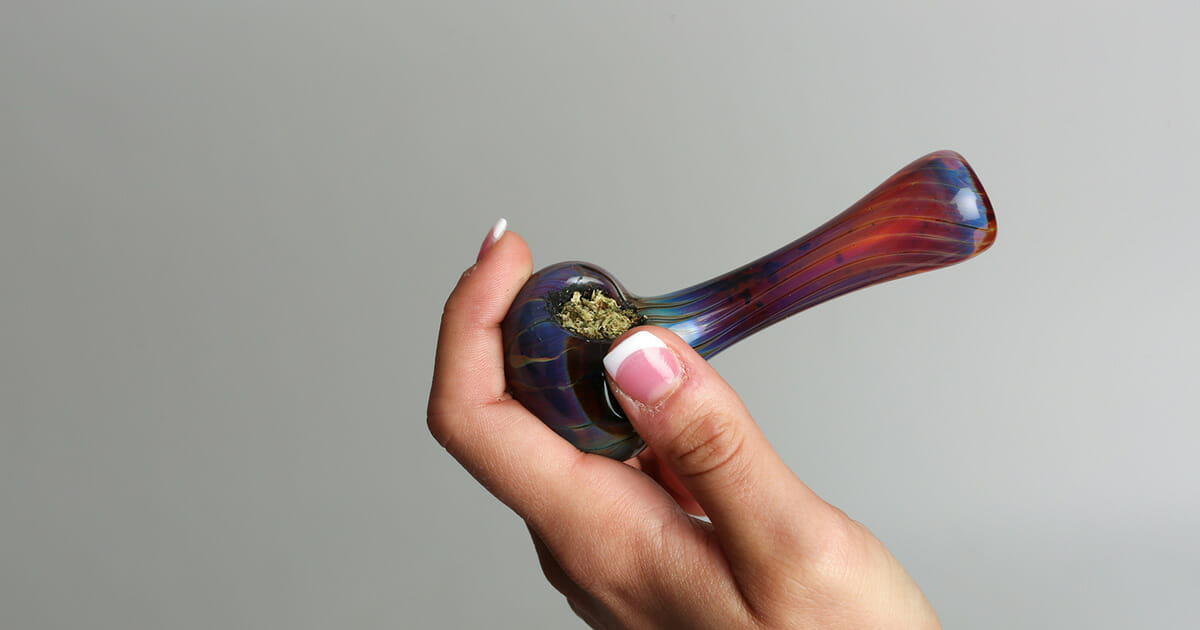Parenting and Cannabis: What You Need To Know
Written by Marijuana Cannaisseur on Mar 9, 2022
If you’re a marijuana user and a parent, you likely want to understand how smoking weed will affect any parental rights and responsibilities, as well as the social stigma that may come with being a parent who is open about it.
While there still may be some social stigma to smoking weed, it is becoming more and more accepted. Likewise, as more research makes it clear that marijuana has medical benefits for the body and mind, it’s likely to become more accepted.[1]Burggren, A. C., Shirazi, A., Ginder, N., & London, E. D. (2019). Cannabis effects on brain structure, function, and cognition: considerations for medical uses of cannabis and its derivatives. … Continue reading This is good news for parents who want to smoke weed, as they will likely have less to worry about in terms of social consequences.
The Legal Side
As marijuana is legalized in more states with each election, it is becoming an increasingly common substance to use – both recreationally and medically. And with the growing legalization of cannabis, there is often more space for parents to smoke weed without fear of legal consequences. However, even though it is legal in your state, you should know about your state’s laws for driving while high, what it means for levels of intoxication, and amounts that you can own without a dispensary license. All these factors could affect your parenting as well.
For instance, if you are a parent who smokes weed and you are pulled over for a traffic stop, the officer may test your weed to see if it is within the legal limit. If it is not, you could face legal repercussions as a result of the test. Since weed is still illegal federally, all states have different levels for use while driving.
Driving while using pot would fall under the umbrella of criminal law, but civil laws could affect your ability to smoke pot in front of your kids, too. If you are a divorced parent who smokes, your ex may claim this as harmful. This could lead to modifications to your parenting time agreement. Shared custody always includes a measure of compromise, so consider discussing your use with your ex-spouse before it becomes an issue of contention.
Because marijuana is so newly legal, the courts may lean more conservatively when it comes to issues involving parents smoking weed. In states where medical consumption is legal but not recreational use, expect courts to be less forgiving about using pot in front or around children. Though it isn’t much different than leaving an open beer sitting around, the courts need time to catch up with these changes. Accidentally ingesting cannabis can make kids very sick, so this step is crucial.[2]Emoto, J., Weeks, K., & Kallail, K. J. (2020). Accidental Acute Cannabis Intoxication Presenting as Seizure in Pediatrics Patients. Kansas journal of medicine, 13, 129–130.
The legal landscape for parents who smoke weed is changing and will likely continue to change as marijuana becomes legalized in more states. Keep an eye out for any changes to the laws when it comes to weed, as they will likely affect you and your parenting. Be sure to understand your state law before buying or consuming pot. Doing so from an established and reputable dispenser will ensure you are on the right side of the law.
Medical Marijuana
In some states, it is still illegal to use marijuana recreationally; however, you can get a medical card if you have an approved condition. By getting a medical card, you will be able to access marijuana for medical purposes. This can be a great tool for parents who suffer from conditions like chronic pain, anxiety, and depression.[3]Feingold, D., Brill, S., Goor-Aryeh, I., Delayahu, Y., & Lev-Ran, S. (2019). Harefuah, 158(7), 438–444.
Conditions that qualify for medical marijuana will vary by state, but a few of the most common include:
- Cancer
- HIV/AIDS
- Glaucoma
- Crohn’s Disease
- Hepatitis C
- Amyotrophic Lateral Sclerosis
- Alzheimer’s Disease
- Nail Patella
- PTSD
- OCD
Parental and Legal Issues
Regardless of your comfort level with smoking around kids, you need to be aware that there could be legal ramifications.
Cannabis Paraphernalia Legalities

Keep in mind that the law surrounding marijuana use encompasses more than just consumption. The paraphernalia necessary for smoking pot is generally legal in states where recreational consumption is also legal. However, it’s important to check your state laws.
If you have children in the home, make sure they understand that the paraphernalia (your pipes, bongs, rolling papers and other accessories) are for adults only, and keep it in a place where they aren’t likely to find it. Obviously, it’s crucial to never leave any of your actual product where children can find or touch it. If you have friends who come over when your children are in the home, make sure that they understand how serious it is to keep their paraphernalia out of reach.
If your kids have friends over, be extra cautious with both your product and your tools. Though you can have an open conversation about using cannabis with your own kids, you don’t always have the same freedom with their friends. Unless you have an understanding with these children’s parents, it’s best to avoid smoking or consuming in their presence. In fact, even if you have an understanding, it’s best to proceed with caution if you plan on smoking at all.
The Social Aspect
Many parents feel that they should not smoke when their children are present as it could negatively impact their child’s behavior or education. It is important to remember that kids are going to be around weed in some way, shape, or form at some point in their life. Kids will be exposed to weed through friends, TV and movies, or even just overhearing adults talk about it.
This means that it is important to have open and honest conversations with your kids about weed. In fact, regardless of whether you use it occasionally or daily and whether your kids know you smoke or not, having earnest conversations with them about pot is crucial. Many teens assume that legal pot is simply legal – without realizing age limits or whether it’s for recreational or medical use could factor into its legality.
Other Issues Surrounding Cannabis Use for Parents
Consider, too, that there are some issues with second hand inhalation.[4]Naeem Z. (2015). Second-hand smoke – ignored implications. International journal of health sciences, 9(2), V–VI. https://doi.org/10.12816/0024103 Having your children see you smoke is different from them being in the same room with you while you do it. While you don’t want your kids to feel like you are doing something wrong, you do want to be aware of your surroundings. Overcoming the stigma of cannabis is crucial; that’s why having open conversations with your kids about smoking weed is crucial.
Smoking Weed in Front of Your Children
As a parent, one of your goals is to teach your kids healthy habits and how they should act in different situations. This includes your behavior when you are smoking weed. If you are smoking weed in front of your kids, be aware of how you respond to it, as well as how they are reacting to it. Much of your decision will depend on the ages of your children as well as their level of maturity.[5]Eisenberg, N., Jones, T. M., Kosterman, R., Bailey, J. A., Lee, J. O., & Haggerty, K. P. (2019). Parenting Practices in the Context of Legal Marijuana: Voices from Seattle Parents. Journal of … Continue reading
If you have decided that it is okay for your kids to see you smoking weed, there are ways to do so responsibly. First, make sure there is no issue with secondhand smoke or consumption. You should also be mindful of the fact that your kids will see your smoking weed as a positive thing. This could lead to them wanting to try it when they are older, so it is important to be prepared to answer questions.
A few you may hear include:
- When Can I Smoke Weed?
- Why Do You Smoke?
- How Old Do You Have to Be to Buy Marijuana?
- Can I Try Some of Yours?
- Can I Tell My Friends You Smoke?
Include your spouse or your child’s other parent before tackling big questions and let them know that not all families share the same values when it comes to marijuana use. Like alcohol, you have to ensure your kids understand this is an adult product. Though there are no hard and fast rules about consuming in front of your kids, consider the pros and cons of doing so and make a decision that you feel comfortable with. It could be more jarring to discover parents secretly smoking weed as it is to see them doing it out in the open.
The Family Impact
The family impact of cannabis is one that cannot be ignored.[6]Hoffmann J. P. (1995). The effects of family structure and family relations on adolescent marijuana use. The International journal of the addictions, 30(10), 1207–1241. … Continue reading There are many positives to cannabis use, but there are also some negatives. For example, cannabis can be a great tool for parents who are struggling with anxiety or depression. It can also be a great tool for parents who are trying to lose weight.[7]Goyal, H., Singla, U., Gupta, U., & May, E. (2017). Role of cannabis in digestive disorders. European journal of gastroenterology & hepatology, 29(2), 135–143. … Continue reading However, there is the risk that cannabis use can negatively impact family relationships and jobs.[8]Popovici, I., & French, M. T. (2014). Cannabis use, employment, and income: fixed-effects analysis of panel data. The journal of behavioral health services & research, 41(2), 185–202. … Continue reading
To ensure that your family is being positively impacted by cannabis, be honest and open with them about how you are using it. Doing so will make them more likely to trust you and come to you for advice if they have any questions or concerns about cannabis. Parenting while a little high may serve to actually benefit both you and your kids – as long as it is done thoughtfully and responsibly.
Do What’s Right for You and Your Family

Overall, there is no right or wrong answer when it comes to parents and using cannabis. There are many different factors that you will have to consider, such as your personal values and beliefs, the age of your kids, and how cannabis is impacting your family. You also must navigate the unique ages of your kids.
Ultimately, you need to do what feels right for you and your family. It is in your control to set proper boundaries on what you are comfortable with while still enjoying the benefits of cannabis. If you’re interested in learning more and are looking for timely and relevant information on cannabis, please sign-up for our newsletter. We’ll notify you when we have new, expert content available.
Sources:
| ↑1 | Burggren, A. C., Shirazi, A., Ginder, N., & London, E. D. (2019). Cannabis effects on brain structure, function, and cognition: considerations for medical uses of cannabis and its derivatives. The American journal of drug and alcohol abuse, 45(6), 563–579. https://doi.org/10.1080/00952990.2019.1634086 |
|---|---|
| ↑2 | Emoto, J., Weeks, K., & Kallail, K. J. (2020). Accidental Acute Cannabis Intoxication Presenting as Seizure in Pediatrics Patients. Kansas journal of medicine, 13, 129–130. |
| ↑3 | Feingold, D., Brill, S., Goor-Aryeh, I., Delayahu, Y., & Lev-Ran, S. (2019). Harefuah, 158(7), 438–444. |
| ↑4 | Naeem Z. (2015). Second-hand smoke – ignored implications. International journal of health sciences, 9(2), V–VI. https://doi.org/10.12816/0024103 |
| ↑5 | Eisenberg, N., Jones, T. M., Kosterman, R., Bailey, J. A., Lee, J. O., & Haggerty, K. P. (2019). Parenting Practices in the Context of Legal Marijuana: Voices from Seattle Parents. Journal of child and family studies, 28(2), 587–598. https://doi.org/10.1007/s10826-018-1288-9 |
| ↑6 | Hoffmann J. P. (1995). The effects of family structure and family relations on adolescent marijuana use. The International journal of the addictions, 30(10), 1207–1241. https://doi.org/10.3109/10826089509105131 |
| ↑7 | Goyal, H., Singla, U., Gupta, U., & May, E. (2017). Role of cannabis in digestive disorders. European journal of gastroenterology & hepatology, 29(2), 135–143. https://doi.org/10.1097/MEG.0000000000000779 |
| ↑8 | Popovici, I., & French, M. T. (2014). Cannabis use, employment, and income: fixed-effects analysis of panel data. The journal of behavioral health services & research, 41(2), 185–202. https://doi.org/10.1007/s11414-013-9349-8 |






